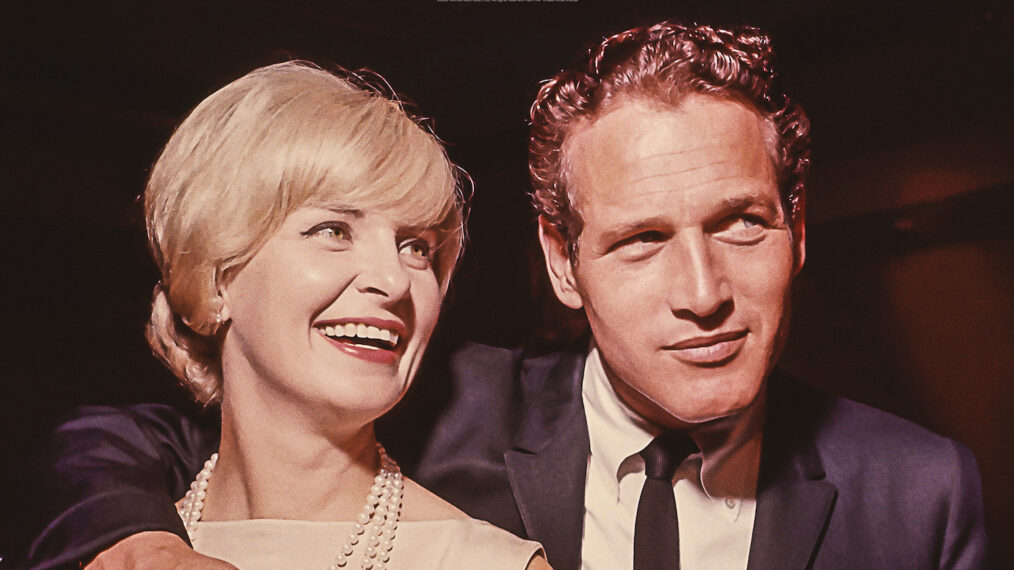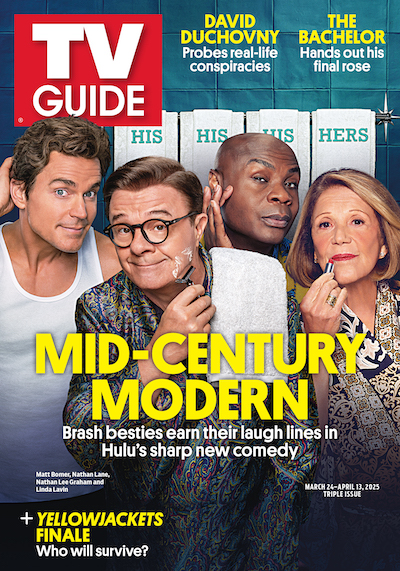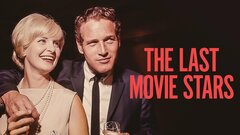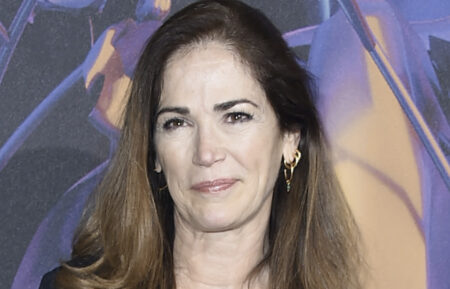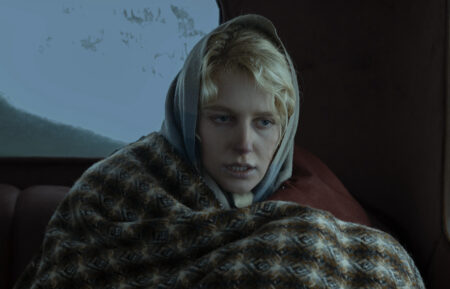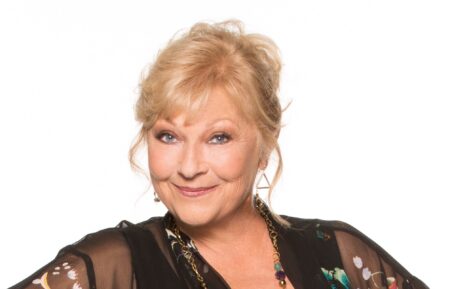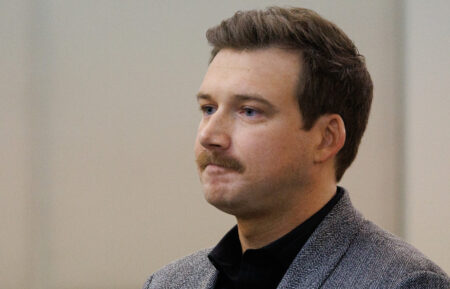Roush Review: Paul Newman & Joanne Woodward’s Love Story, Love for Acting
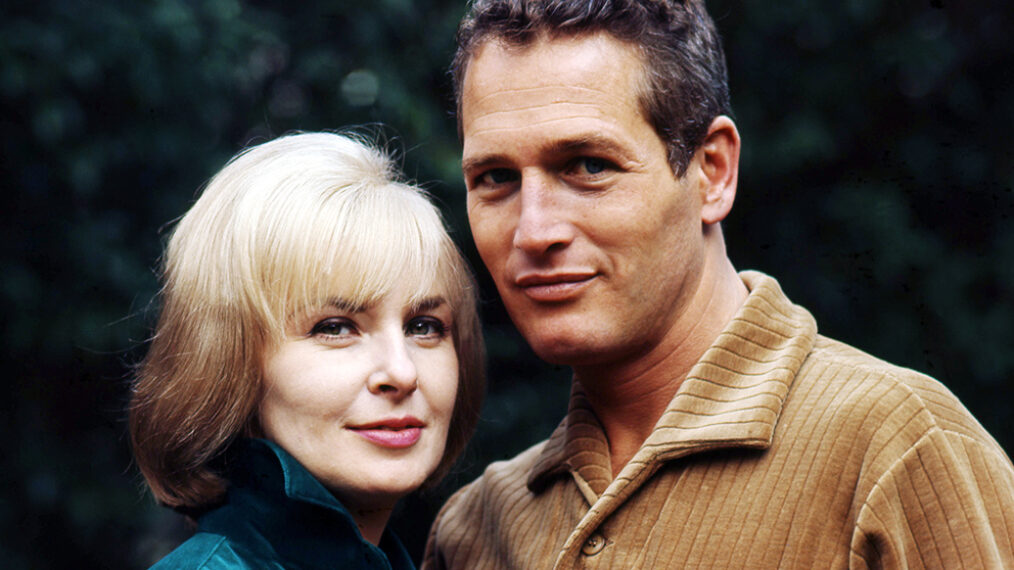
Review
She was the more assured, accomplished, natural actor, winning an Oscar in her twenties. He was the embodiment of a matinee idol, emotionally reserved but dazzling to behold. The 50-year marriage and professional partnership of Paul Newman and Joanne Woodward (including 16 films together) was not without its rocky patches, but it’s an enduring love story rare among celluloid icons. (He died of cancer in 2008; at 92, she is living with Alzheimer’s.)
We learn an encyclopedia’s worth of detail about their careers, lives and struggles over the immersive, exhaustive six chapters of The Last Movie Stars, available in its entirety Thursday on HBO Max. Compiled and directed with giddy zeal by an earnestly frenzied Ethan Hawke, the actor is ever the curious enthusiast and fanboy, often shown gushing about his iconic subjects and debating his creative decisions in Zoom sessions with famous friends and family members (including actress daughter Maya Hawke of Stranger Things).
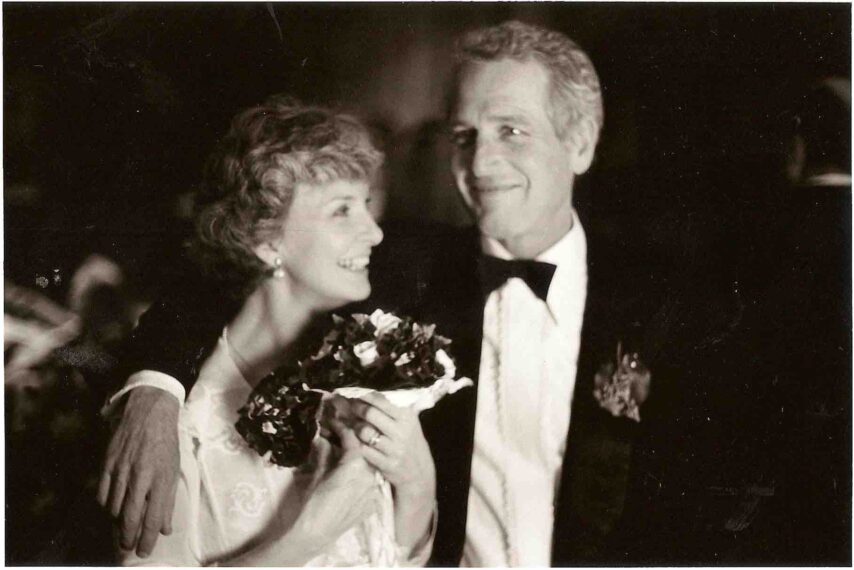
Courtesy of HBO
“They had love, they had family, they were ethical citizens,” muses Hawke. “What was it like to be them?”
Unlike any biographical portrait I’ve ever seen, this endlessly fascinating docuseries unfolds like a detailed oral history, with actors (Sam Rockwell! Oscar Isaac! Karen Allen!) reading from copious transcripts of candid interviews conducted by Newman friend and screenwriter Stewart Stern for a never-published memoir. George Clooney reads Newman’s words (“Acting, racing: You’re constantly aware of your own inadequacies”) and Laura Linney reads Woodward’s: “If I had it to do all over again, I might not have had children. Actors don’t make good parents.” Stealing several episodes is Broadway veteran Brooks Ashmanskas as witty author/screenwriter Gore Vidal, who knew them when and coined the “last movie stars” phrase in describing their rise to cinema stardom during the waning years of the Hollywood studio system.
Hawke interviews some surviving offspring and grandchildren, and Newman’s first wife, with illuminating results, but where Movie Stars most excels is as a dissertation on the art, craft, challenges and rewards of acting. (Vincent D’Onofrio’s demonstration of Method acting won’t soon be forgotten.) “I don’t have the immediacy of personality. I’m not a true eccentric,” Newman frets with self-doubt, while Woodward teases, “Acting is like sex. You should do it and not talk about it.” We learn that Newman was especially sensitive to comparisons in the 1950s with rising star Marlon Brando and that Woodward sewed her own Oscar gown when she won in 1958 for The Three Faces of Eve.
When they wed in 1958, Woodward was by far the bigger star, but once she began raising their six children (three from his first marriage), Newman’s global fame as a sex symbol soon eclipsed hers. Even so, he gives her all the credit: “Newman as a sexual object was simply invented. It was never organic to the person,” he explains. “The sexuality was never there. How did I invent it from film to film? I didn’t. … There should be a parade in Joanne’s honor as creator of the symbol.”
Indeed, their mutual desire for each other, which grew as they danced together in the wings while understudies in the original Broadway production of Picnic, is part of their legend. There were dark periods, including his struggle with alcoholism, but through home movies, TV interviews and clips of their onscreen chemistry and offscreen activism and philanthropy, we again become fans, seeing how fully and lovingly they lived.
The Last Movie Stars, Documentary Premiere, Thursday, July 21, HBO Max
From TV Guide Magazine
How Hulu's 'Mid-Century Modern' Is a 'Golden Girls' for Our Times
Settle in for some older and bolder laughs with the BFFs of a certain age in the new comedy starring Nathan Lane, Matt Bomer, and Nathan Lee Graham. Read the story now on TV Insider.

